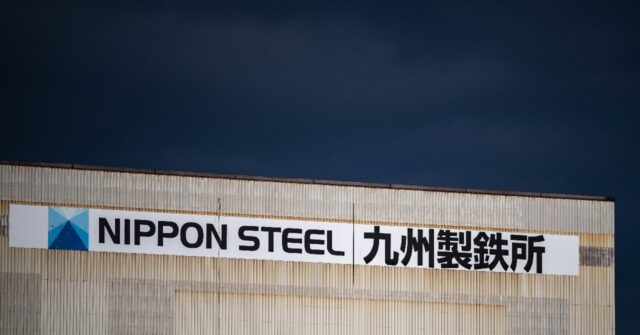Following the announcement of a planned $14.9 billion takeover of US Steel by Japanese company Nippon Steel, US President-elect Donald Trump took a firm stance against the acquisition. Trump expressed his disapproval through social media, stating he is “totally against” the takeover, fearing it undermines American industrial power. He claimed that such foreign ownership would weaken the once-mighty U.S. Steel and vowed to block the deal using tax incentives and tariffs aimed at revitalizing the American steel industry. Trump pledged to act swiftly in reinstating the strength of U.S. Steel, emphasizing that his administration would prioritize American interests over foreign acquisitions.
US Steel, facing significant financial challenges, has argued that the acquisition is crucial for securing needed investments, particularly for its Mon Valley facilities in Pennsylvania. The company has warned that without the deal, it may be forced to close some plants. In response to Trump’s remarks, Nippon Steel asserted its commitment to bolstering US Steel, highlighting plans to invest at least $2.7 billion into its American operations while promoting job security for steelworkers. Nippon Steel’s proposal involves the introduction of advanced technological innovations designed to enhance the capabilities of the U.S. steel industry, aiming to benefit both American businesses and the national supply chain.
The takeover is under scrutiny by the Committee on Foreign Investment in the United States (CFIUS), a body responsible for reviewing foreign transactions and their implications on U.S. national security. The Biden administration has expressed concerns similar to Trump’s, asserting that it is crucial for US Steel to remain an American entity. Biden previously extended the review of this acquisition to ensure a comprehensive assessment before making a decision. Nippon Steel has indicated it remains optimistic about closing the deal by the end of 2024, contingent on the review’s outcome.
Trump’s protectionist agenda has been a central part of his political identity since his initial campaign. He has promised to implement aggressive trade policies aimed at safeguarding American industries from foreign competition. His opposition to Nippon’s acquisition appeared consistent with this approach and aligns with sentiments shared by many lawmakers, including his vice presidential pick J.D. Vance. Vance’s involvement reflects a broader bipartisan unease regarding foreign takeovers, particularly in key industries like steel, that are vital to national security and economic independence.
Despite the significant political and public pushback against the deal, notable factions within the steelworkers union have expressed support for the acquisition. Some workers believe that Nippon’s investment is essential for the viability of their jobs and the future of the plants. The union’s divided stance indicates a multifaceted debate surrounding the acquisition, where the promise of job security through foreign investment contrasts sharply with concerns about national sovereignty and the integrity of American industry.
As these tensions unfold, the review by CFIUS remains a pivotal point for both US Steel and Nippon Steel. The outcome of this deal will likely set important precedents for future foreign investments in American industries amid rising protectionism. The situation epitomizes the delicate balance between fostering economic growth through foreign partnerships and maintaining national integrity and security in critical sectors. With the upcoming transition to a Trump administration, the final decision on the acquisition remains fraught with uncertainties, reflecting broader themes of American exceptionalism and the evolving landscape of global business.

